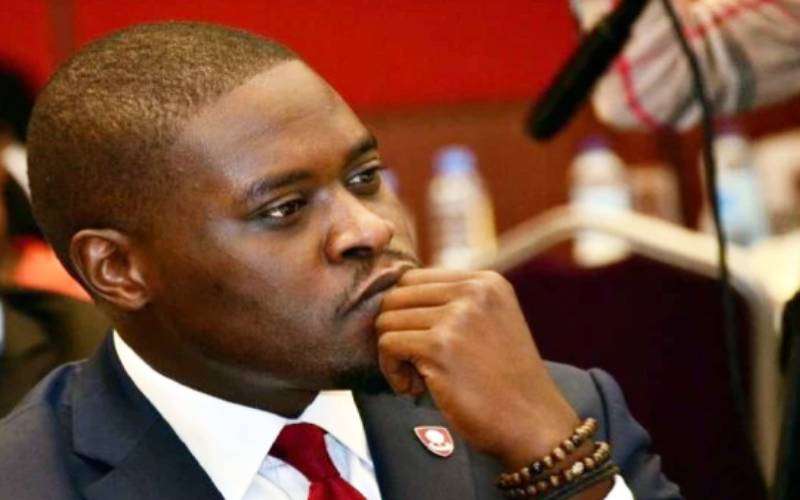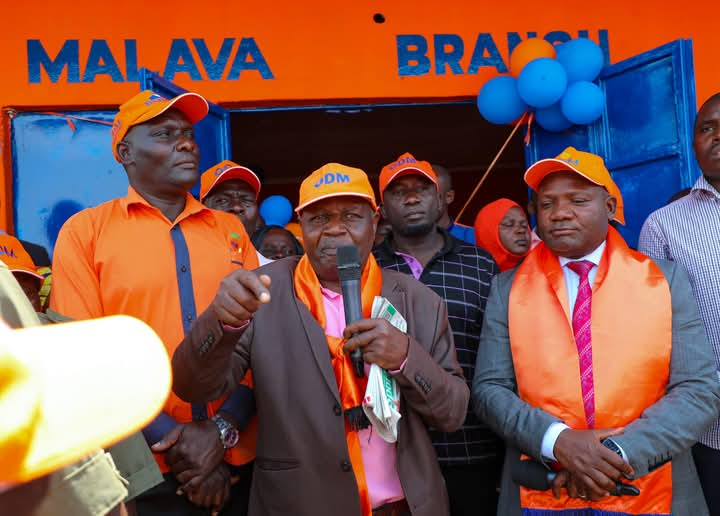Nairobi Governor Johnson Sakaja is facing scrutiny over allegations of selling two prime plots of land belonging to the Nairobi County government, valued at millions of shillings. Sources at City Hall have confirmed that the disputed properties include a county depot along Landhies Road, situated between Nacico Plaza and the Shell Petrol Station, and another plot adjacent to St. Peter Clavers Primary School on Racecourse Road.
“It is true that the two parcels are gone. In fact, the one near St. Peter has already been surveyed, demarcated, and marked with beacons,” a source told The Weekly Vision.
There are reports that a well-connected politician has acquired the Landhies Road property and is planning to build a high-rise complex on the site. This revelation comes amid growing concerns about the county’s ability to protect its public assets. During a County Assembly Planning Committee meeting, it was disclosed that City Hall does not have title deeds for land currently being used for two affordable housing projects.
Executive Committee Member for the Built Environment and Urban Planning, Patrick Mbogo, informed the committee that the title for Jevanjee estate is still held by former Nairobi Governor Mike Sonko, while the Pangani estate title remains untraceable.
Land grabbing has been a chronic issue for City Hall, with politically connected individuals often being accused of taking over prime properties. An earlier investigation found that a plot of land in South B, LR. NO. 209/12612, which had been earmarked for a modern market and shops, had been allocated to former Kiambu Town MP John Macua Waithaka.
However, since taking office, Governor Sakaja has publicly committed to reclaiming grabbed county land. A notable case involves a 5.12-acre parcel in Karen, which was unlawfully acquired by Davjon Group, who demanded Ksh. 1.28 billion from City Hall to relinquish it. The parcel, which was originally reserved for sewage work and staff housing, is currently being used as a sewage treatment pond by the Nairobi City Water and Sewerage Company. Following these allegations, the Ethics and Anti-Corruption Commission (EACC) launched a probe in June.
“We thank the EACC for partnering with us in recovering public land and dealing with land grabbers. This is public land that is crucial for sewerage treatment in the area,” Sakaja stated during the probe.
He further noted that his administration had reclaimed 700 parcels of land that had been grabbed, including 18 acres of prime property at the junction of Kiambu Road and the Northern Bypass. Given these efforts, it is surprising to hear that he may have sanctioned the sale of strategically located land on Racecourse and Landhies Road, which are vital to county operations.
The controversy raises questions about the consistency of the county’s stance on land protection and whether the sale was approved through proper channels or a backdoor deal that could potentially undermine Sakaja’s image as a reformer.
What’s Next for Nairobi’s Public Land?
With Governor Sakaja’s administration previously lauded for its efforts to recover grabbed land, these new accusations cast a shadow of doubt over his commitment to safeguarding county assets. As public pressure mounts, only time will tell whether these allegations will be thoroughly investigated, and what implications they may have for Nairobi’s future urban planning.





